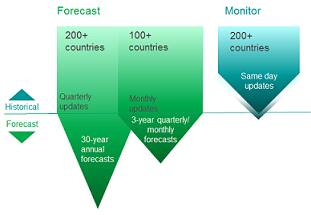The Stock Market is a dynamic and ever-changing landscape that presents both opportunities and risks for investors.
Whether you are a seasoned trader or just starting out, being prepared before the stock market opens is crucial for success. With so much information and news available, it can be overwhelming to determine which factors are most important to consider. In this blog post,
We have compiled the top 10 must-knows that you need to be aware of before the stock market opens today. From understanding market trends and analyzing company earnings reports to staying updated on global economic indicators and managing your risk, this comprehensive guide will equip you with the knowledge and insights necessary to make informed investment decisions and set yourself up for success in the stock market.
Understand market trends and indicators

Before the stock market opens today, it is crucial to understand market trends and indicators. These can provide valuable insights into the direction the market may take and help you make informed decisions. One important trend to consider is the overall market sentiment. Are investors feeling optimistic or cautious? This can impact the buying and selling behavior of market participants, influencing stock prices. Additionally, keeping an eye on major indices such as the S&P 500 or Dow Jones Industrial Average can give you a broad view of the market’s performance.
Analyzing these indices’ movement and comparing them to historical data can provide a sense of market momentum. Another key indicator to watch is volume. High trading volume can signal increased market activity and liquidity, while low volume may indicate a lack of interest or participation. It is also important to monitor economic indicators, such as GDP growth, inflation rates, and interest rates.
These factors can have a significant impact on the overall economy and subsequently affect the stock market. Lastly, staying informed about specific industry trends and news related to the companies you are interested in can help you identify potential opportunities or risks. Remember, understanding market trends and indicators is an ongoing process, and staying informed is essential for successful stock market participation.
Key Market Events
Recent Market Performance
Understanding recent market performance is crucial as it sets the tone for the trading day. For instance, if major indices like the S&P 500, Dow Jones, or NASDAQ performed well the previous day, it may indicate a bullish sentiment in the market. Conversely, a negative performance might suggest a bearish sentiment.
Global Economic Indicators
Global economic indicators play a significant role in shaping market movements. These indicators include GDP growth, unemployment rates, manufacturing data, and more. For example, a strong GDP growth report might boost investor confidence, leading to positive market movements.
Earnings Reports
Corporate Earnings Releases
Earnings reports are critical for investors. Publicly-traded companies release quarterly earnings reports, providing insights into their financial health. Positive earnings surprises often result in stock price increases, while disappointing earnings can lead to declines.
Impact on Stock Prices
Understanding how earnings reports influence stock prices is vital for traders. For instance, if a company reports better-than-expected earnings, it can lead to a surge in its stock price as investors perceive it as a sign of strong financial performance. Conversely, missing earnings expectations can lead to stock price drops.
Sector Analysis
Leading Sectors
Different sectors within the stock market perform differently based on various factors like economic conditions and industry-specific developments. Some sectors, like technology, healthcare, or energy, might outperform others during specific periods. Identifying these leading sectors can help investors make informed decisions.
Market Trends
Within each sector, market trends can vary. For example, the technology sector might be experiencing a bullish trend due to increased demand for tech products, while the energy sector might be facing headwinds. Recognizing these trends can guide investment strategies.
Notable Stock Movements
Gainers and Losers
Every trading day, some stocks experience significant price movements. It’s crucial to identify these gainers and losers. For instance, a stock gaining 10% in a day might have positive news or earnings results driving the increase, while a stock losing value may have faced setbacks.
Influencing Factors
Diving deeper into notable stock movements involves understanding the factors behind these price changes. It could be news related to the company, industry developments, macroeconomic events, or shifts in investor sentiment. Recognizing these catalysts can inform trading decisions.
Commodity and Currency Market Updates
Commodities Outlook
Commodities like oil, gold, and silver have a direct impact on the stock market. For instance, rising oil prices can affect transportation and energy stocks. Staying informed about the outlook for commodities can help traders anticipate stock movements.
Currency Market Developments
Currency exchange rates play a critical role in international trade and multinational corporations. Changes in exchange rates can influence the profitability of companies with global operations. Monitoring currency market developments and their implications is essential.
Federal Reserve Update
Monetary Policy News
The Federal Reserve’s decisions on monetary policy can have a profound impact on the stock market. For example, if the Fed announces an interest rate hike, it can lead to increased borrowing costs for businesses, potentially affecting corporate profits and stock prices.
Interest Rate Projections
Interest rates affect various aspects of the economy, including borrowing costs and consumer spending. Projections about future interest rate changes can provide valuable insights into market direction. If the Fed signals future rate hikes, it may lead to market volatility.
Market Sentiment and Investor Behavior
Investor Sentiment Indicators
Market sentiment indicators like the VIX (Volatility Index) gauge investor sentiment. High levels of volatility may indicate market uncertainty or fear. Understanding investor sentiment can help traders assess the overall mood of the market.
Behavioral Analysis
Studying investor behavior patterns involves analyzing how investors react to market events. For example, during times of uncertainty, some investors may seek safe-haven assets like gold, while others may adopt riskier strategies. Behavioral analysis can guide trading decisions by considering how the market participants are likely to act.
Analyze company earnings reports
Analyzing company earnings reports is a crucial step in preparing for success in the stock market. These reports provide valuable insights into a company’s financial health and performance, which can greatly impact stock prices. Before the stock market opens today, it is essential to familiarize yourself with a few key aspects of analyzing earnings reports. Firstly, pay close attention to the revenue and earnings figures. These numbers reflect a company’s ability to generate profits and can indicate growth potential.
Look for consistent or increasing revenue and earnings trends, as this often bodes well for stock performance. Secondly, examine the company’s earnings per share (EPS) and compare it to analysts’ expectations. A company exceeding EPS estimates may signal positive market sentiment and potentially drive stock prices higher. On the other hand, falling short of expectations can lead to disappointing stock performance. Additionally, scrutinize the company’s expenses, such as cost of goods sold, operating expenses, and taxes.
Understanding these factors can provide insights into a company’s efficiency, profitability, and potential risks. Another important aspect to consider is the company’s guidance or outlook for future performance. Positive guidance can instill confidence in investors, while negative guidance may raise concerns about the company’s future prospects. Lastly, don’t forget to consider any qualitative factors provided in the earnings report, such as management commentary, strategic initiatives, or market trends.
These insights can help you gauge the company’s overall strategy and assess its competitive position in the market. By analyzing company earnings reports thoroughly, you can make more informed decisions when trading stocks. This knowledge empowers you to position yourself strategically and potentially capitalize on market opportunities as the stock market opens today.
Stay updated on global economic indicators

In today’s fast-paced and interconnected world, staying updated on global economic indicators is crucial for anyone seeking success in the stock market. These indicators provide valuable insights into the overall health and performance of economies around the world, which can have a significant impact on stock prices. By keeping a close eye on these indicators, investors can make more informed decisions and position themselves for success.
One of the most important global economic indicators to monitor is the Gross Domestic Product (GDP) of major economies. GDP measures the total value of goods and services produced within a country and is a key indicator of economic growth. Changes in GDP can signal shifts in market conditions and investor sentiment. Another essential indicator to follow is inflation rates. Inflation refers to the increase in prices of goods and services over time, eroding the purchasing power of currency.
High inflation can lead to higher interest rates, impacting stock market performance. Therefore, keeping an eye on inflation rates can help investors understand potential risks and adjust their strategies accordingly. Furthermore, it is crucial to stay updated on global interest rates. Central banks often adjust interest rates to manage economic growth and inflation. Changes in interest rates can impact borrowing costs, consumer spending, and business investments, ultimately influencing stock market performance.
Additionally, geopolitical events play a significant role in shaping the global economy. Factors such as trade disputes, political unrest, and natural disasters can have far-reaching effects on stock markets. Tracking these events and their potential impact on economies allows investors to anticipate and manage associated risks. Monitoring international trade data is equally important. Trade balances, import/export figures, and trade agreements can provide insights into market dynamics and potential investment opportunities. Changes in trade policies, such as tariffs or trade agreements, can significantly impact specific industries or sectors.
Furthermore, keeping an eye on key economic indicators from major economies like the United States, China, and the European Union is essential. These economies have a significant influence on global markets, and changes in their economic indicators can have a ripple effect worldwide. In conclusion, staying updated on global economic indicators is a fundamental aspect of preparing for success in the stock market.
By monitoring factors such as GDP, inflation rates, interest rates, geopolitical events, and international trade data, investors can make more informed decisions and position themselves for profitable opportunities. Being aware of these must-knows before the stock market opens will help investors navigate the ever-changing landscape of global finance.
Manage your risk
One of the most crucial aspects of succeeding in the stock market is managing your risk effectively. Before the stock market opens each day, it is essential to have a clear understanding of your risk tolerance and how you plan to mitigate potential losses. Here are the top 10 must-knows to help you manage your risk:
- Set your risk tolerance: Determine how much you are willing to risk on each trade or investment. This will help you make informed decisions and avoid excessive losses.
- Diversify your portfolio: Do not put all your eggs in one basket. Allocate your investments across different sectors and asset classes to reduce the impact of any single stock’s performance.

- Research, Best Research, More Research RRR: Thoroughly analyze the companies you plan to invest in. Understand their financials, competitive landscape, and industry trends to make informed decisions.
- Set stop-loss orders: Set predefined levels at which you will exit a trade to limit potential losses. This will help you control downside risk and protect your capital.

- Stay updated on market news: Keep an eye on market news, economic indicators, and company announcements. Stay informed about any developments that may impact your investments.
- Use risk management tools: Take advantage of risk management tools provided by your brokerage platform. Utilize features like trailing stops or options strategies to hedge your positions.
- Avoid emotional decision-making: Emotions can cloud judgment and lead to impulsive decisions. Stick to your strategy and avoid making rash moves based on short-term market fluctuations.
- Continuously monitor your investments: Regularly review your portfolio and reassess your risk exposures. Make adjustments as needed to align with your long-term goals and changing market conditions.
- Have an exit strategy: Define your exit strategy for each investment. Determine the criteria that will prompt you to sell or take profits. Stick to your plan to avoid holding onto losing positions.
- Seek professional advice if needed: If you are unsure about managing your risk or lack expertise, consider consulting a financial advisor who can provide guidance tailored to your specific situation.
By following these top 10 must-knows, you can effectively manage your risk and increase your chances of success in the stock market.
![]() Remember, Risk Management is a key aspect of any investment strategy and should not be overlooked.
Remember, Risk Management is a key aspect of any investment strategy and should not be overlooked.
Need to also Knowledge of Top 10 Things to Before the Market Opens
- Global Markets: Analyzing how international markets performed overnight can provide insights into potential market trends.
- Economic Calendar: Checking the economic calendar for scheduled releases of economic data, earnings reports, and central bank speeches helps traders stay ahead.
- Earnings Reports: Highlighting key earnings reports scheduled for the day ensures traders are prepared for potential market-moving events.
- Market Futures: Reviewing futures contracts can offer indications of market direction before the opening bell.
- Pre-Market Movers: Identifying stocks making significant pre-market moves and understanding their catalysts is essential for early trading decisions.
- Sector Performance: Analyzing the performance of sectors helps traders identify potential opportunities or threats in specific industries.
- Commodity Prices: Staying informed about the prices of commodities like oil, gold, and silver can guide trading strategies.
- Currency Exchange Rates: Monitoring currency exchange rates helps traders assess the impact on international stocks.
- Federal Reserve News: Keeping an eye on Federal Reserve announcements and interest rate decisions is critical for understanding monetary policy changes.
- Market Sentiment: Evaluating current market sentiment and the factors driving it helps traders anticipate potential market movements.
Conclusion
Being well-prepared before the market opens is essential for successful trading. By staying informed about these top 10 factors, you can navigate the stock market’s twists and turns with confidence.
FAQs
Why is monitoring global markets important for trading?
Monitoring global markets provides insights into potential trends and influences on the domestic market.
How do earnings reports impact stock prices?
Positive earnings reports often lead to stock price increases, while negative reports can result in declines.
Why is understanding sector performance essential for investors?
Different sectors perform differently based on economic conditions and industry-specific factors, influencing investment decisions.
What are the key factors behind notable stock movements?
Notable stock movements can be driven by news, earnings results, macroeconomic events, or shifts in sentiment.
Why is keeping an eye on currency exchange rates important for investors?
Currency exchange rates affect multinational corporations and international trade, which can impact stock prices.



